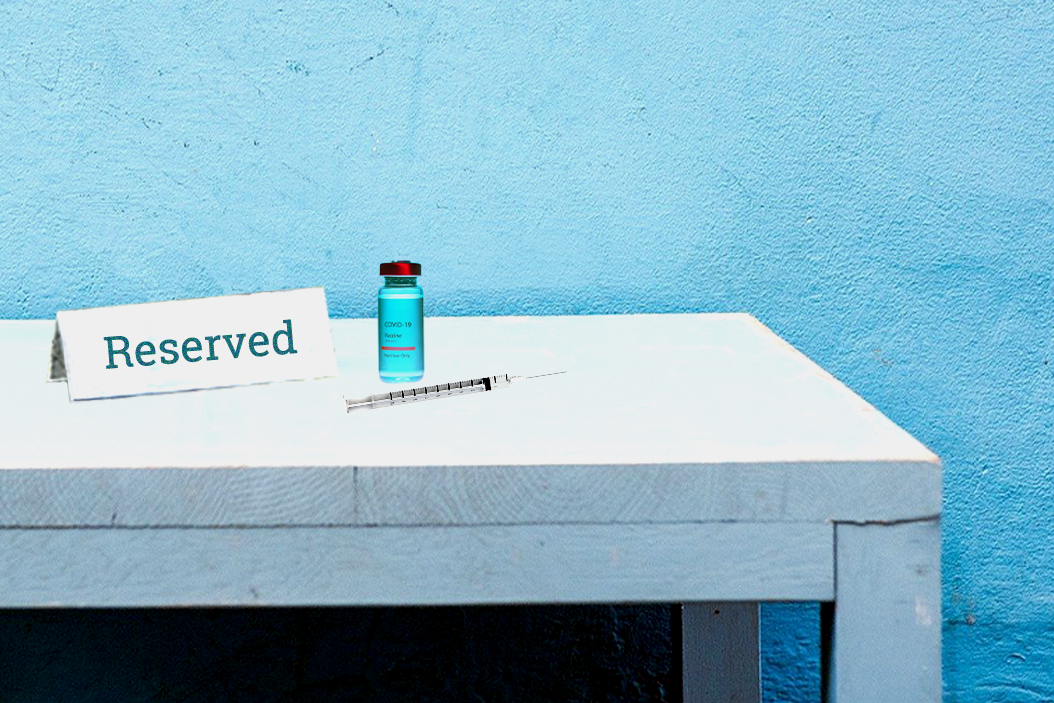More than 32 million COVID shots have now been administered globally, raising hopes that the light at the end of the tunnel is now in sight.
The US has vaccinated 3 percent of its total population, while the UK is nearing a solid 5 percent inoculation rate. In Israel, which has been hailed as a vaccine success story, almost 24 percent of people have already received at least one dose of a COVID vaccine.
But while many countries are able to glimpse the outlines of a post-COVID world, there is a huge population of people who are being left out entirely. Refugees, as well as displaced, undocumented, and stateless people around the world remain ineligible for inoculations and vulnerable to the coronavirus.
We take a look at three case studies where powerless populations are being left in the lurch.
Colombia's Venezuelan migrant dilemma. The dire economic and political crises under the Maduro regime in Venezuela have plunged 65 percent of households into poverty and caused widespread food and medicine shortages. As a result, 1.7 million desperate Venezuelans have spilled over into neighboring Colombia, putting a massive strain on Colombia's already weak public infrastructure.
Now Colombian President Ivan Duque says that those who don't have formal migration status will not have access to Colombia's vaccine stash, meaning that around 935,000 Venezuelan refugees will be ineligible for the shot. Duque claims the policy is aimed at prioritizing the wellbeing of Colombians first amid a surging outbreak, and avoiding a rush on the border as more Venezuelans clamor to get the vaccine. But public health experts say that the move isn't just a humanitarian failure, it's also an epidemiological one that will hamper Colombia's efforts to root out the disease, because a successful vaccine drive should be as broad as possible.
Israel shirks responsibility to Palestinians. Israel has been broadly praised for its ambitious vaccine drive, now leading the world in COVID vaccinations per capita by a long shot. At this rate, the government aims to vaccinate the entire population of 9 million by the end of March, a remarkable feat as vaccine rollouts remain sluggish across North America and Europe.
But Israel's vaccine drive excludes millions of Palestinians living in the occupied West Bank, as well as the Gaza Strip (though the Strip is run by the Islamist Hamas militant group and not the internationally-recognized Palestinian Authority).
Israeli officials say that Palestinian Authority President Mahmoud Abbas has not reached out for assistance with vaccine procurement, an odd justification for inaction during a once-in-a-generation global crisis. They also argue that under the terms of the Oslo Accords, the de-facto law of the land, the Palestinian Authority oversees healthcare for its people. (Arab citizens of Israel are in fact being vaccinated.)
But application of international law here is murky: while the Oslo Accords gave the Palestinian Authority responsibility in the West Bank and Gaza, the Fourth Geneva Convention states that an occupying power (Israel) has a clear responsibility to assist those living under its occupation (the Palestinians). Under Israel's current vaccine scheme, millions of Palestinians in the West Bank, many of whom work in Israeli cities, are being left behind.
Undocumented migrants abandoned in the US. Nebraska's Republican Governor Pete Ricketts recently sparked a firestorm when he said undocumented immigrants would be ineligible for COVID vaccines in his state. Ricketts doubled down even when critics pointed out that 11 percent of Nebraska's meat processing workers, who have been pummeled by COVID-19, are undocumented.
Similar conversations have played out in New York state, home to at least 750,000 undocumented migrants (likely an undercount) who are disproportionately represented in essential jobs. The federal government recently reneged on a requirement mandating that states report the personal details of all vaccine recipients, information that could then be passed on to US Immigration and Customs Enforcement. However, after the government flip-flop, it's unclear whether undocumented New Yorkers — who fear arrest and deportation — will now feel safe to show up for the jab.
Not enough vaccines. Leaving behind the most vulnerable populations both within their own countries' borders and in adopted ones, is not only morally questionable, it is bad public health policy as the world strives to get to COVID zero. But there is a very basic constraint here for all the politicians involved: there are fewer vaccines than people, and no elected leader could agree to vaccinate non-citizens before citizens, could they?
More For You
15: The number of migrants who died after their boat accidentally collided with a Greek Coast Guard vessel in the Aegean Sea on Tuesday. Two dozen people were rescued.
Most Popular
Walmart is investing $350 billion in US manufacturing. Over two-thirds of the products Walmart buys are made, grown, or assembled in America, like healthy dried fruit from The Ugly Co. The sustainable fruit is sourced directly from fourth-generation farmers in Farmersville, California, and delivered to your neighborhood Walmart shelves. Discover how Walmart's investment is supporting communities and fueling jobs across the nation.
Democratic Alliance leader John Steenhuisen announced Wednesday that he will not run for a third term as leader of the liberal, pro-business party, after months of internal pressure over a host of controversies – including allegations, since cleared, that he used the party credit card for Uber Eats.
